EchoAPI vs. Postman: Why EchoAPI is the Superior Choice for API Management
While Postman is a widely used and well-known API tool in the market, technological advancements have brought attention to a rising star: EchoAPI.
In today’s development landscape, the choice of API tools significantly impacts a developer's efficiency and experience. While Postman is a widely used and well-known API tool in the market, technological advancements have brought attention to a rising star: EchoAPI. This article compares EchoAPI and Postman from various angles, analyzing their strengths and weaknesses.

What is EchoAPI?
EchoAPI is a powerful API tool designed for modern developers, aiming to simplify and accelerate the API development and testing process. It features a beautiful user interface and offers complete offline usage. Additionally, EchoAPI supports interface debugging, performance testing, automated testing, mock services, and bulk API documentation generation. It also provides numerous lightweight plugins that integrate seamlessly with various development environments.
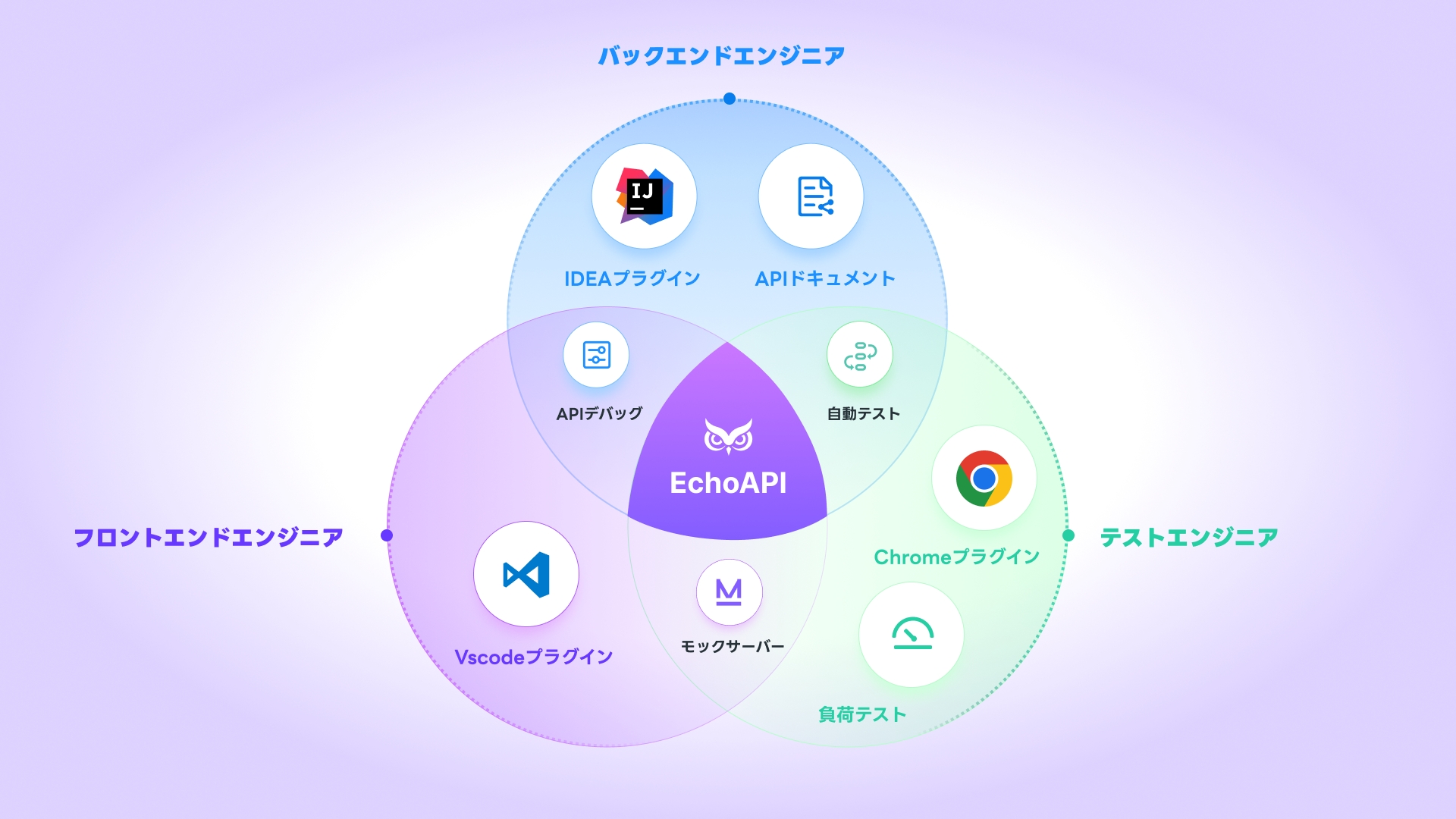
A notable feature is EchoAPI’s ability to easily import Postman projects. EchoAPI is fully compatible with Postman’s scripting syntax, ensuring that there are no migration costs. This means existing Postman users can smoothly transition to EchoAPI without having to recreate their current test cases and scripts.
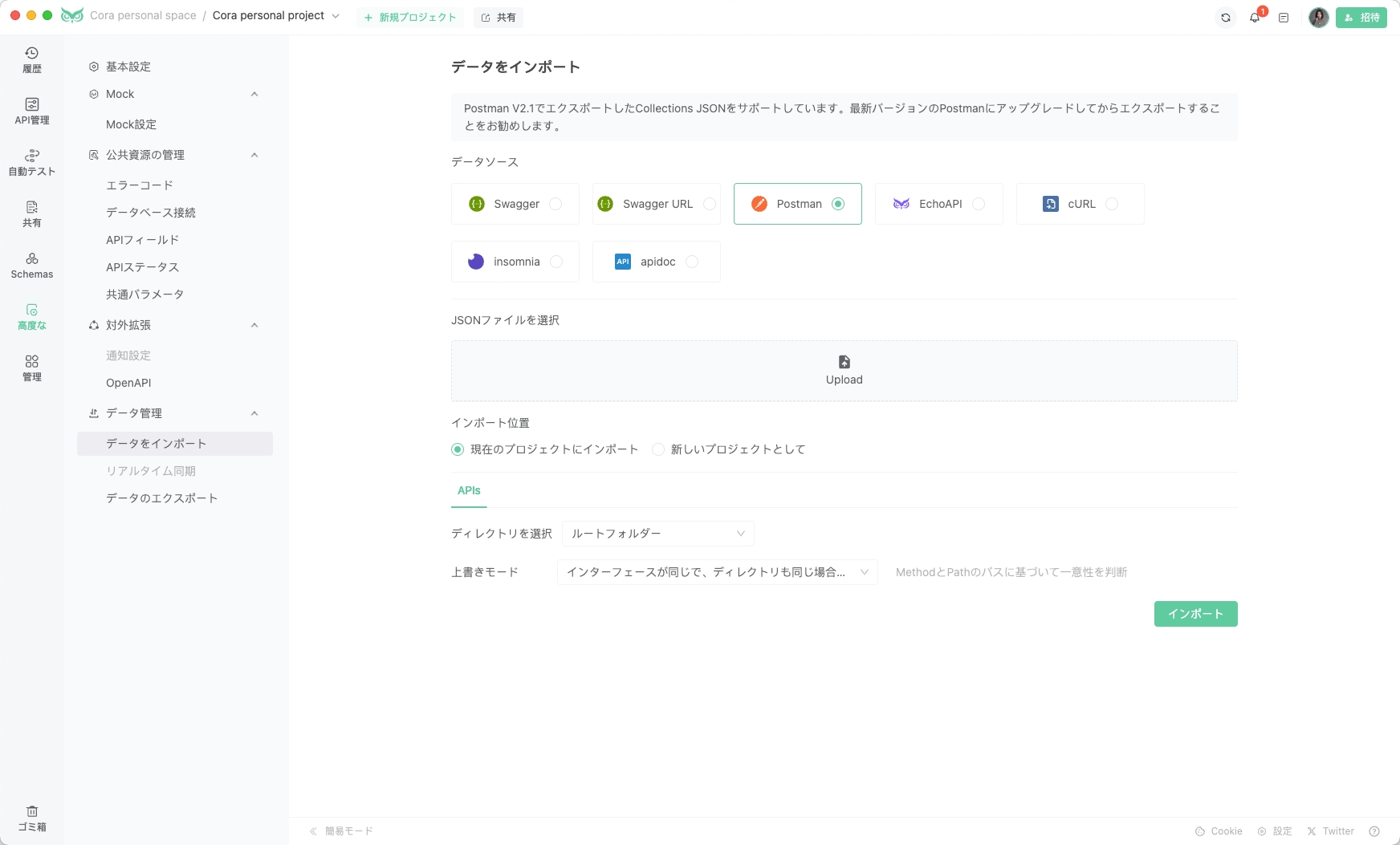
EchoAPI vs. Postman: A Comparative Analysis
| Feature | EchoAPI | Postman |
|---|---|---|
| UI Interface | Beautiful, modern UI design that is easy to use and optimized for a great user experience. | Offers powerful functionality, but the UI is complex and requires a learning curve. |
| Offline Usage | Fully usable offline, not dependent on network conditions. | Recently deprecated offline mode, requiring online login. |
| Interface Debugging | Provides complete and user-friendly interface debugging capabilities. | Strong debugging features, but may take time for beginners to adapt. |
| Performance Testing | Offers detailed performance testing features, including request frequency management and timing functions. | Supports performance testing but needs more refined control and analysis. |
| Automated Testing | Provides powerful automated testing capabilities, allowing the creation and execution of complex test scripts. | Supports automated testing but lacks in complexity and flexibility. |
| Mock Services | Supports mock services, easily simulating API behavior. | Provides mock services but with relatively fewer features. |
| API Documentation | Generates beautiful API documentation in bulk, enhancing team collaboration and development efficiency. | Supports API documentation generation but requires more setup. |
Lightweight Plugin Support
EchoAPI enhances flexibility and usability with a range of lightweight plugins, including:
EchoAPI for IntelliJ IDEA: An efficient tool for quickly organizing code, generating interfaces, and debugging.
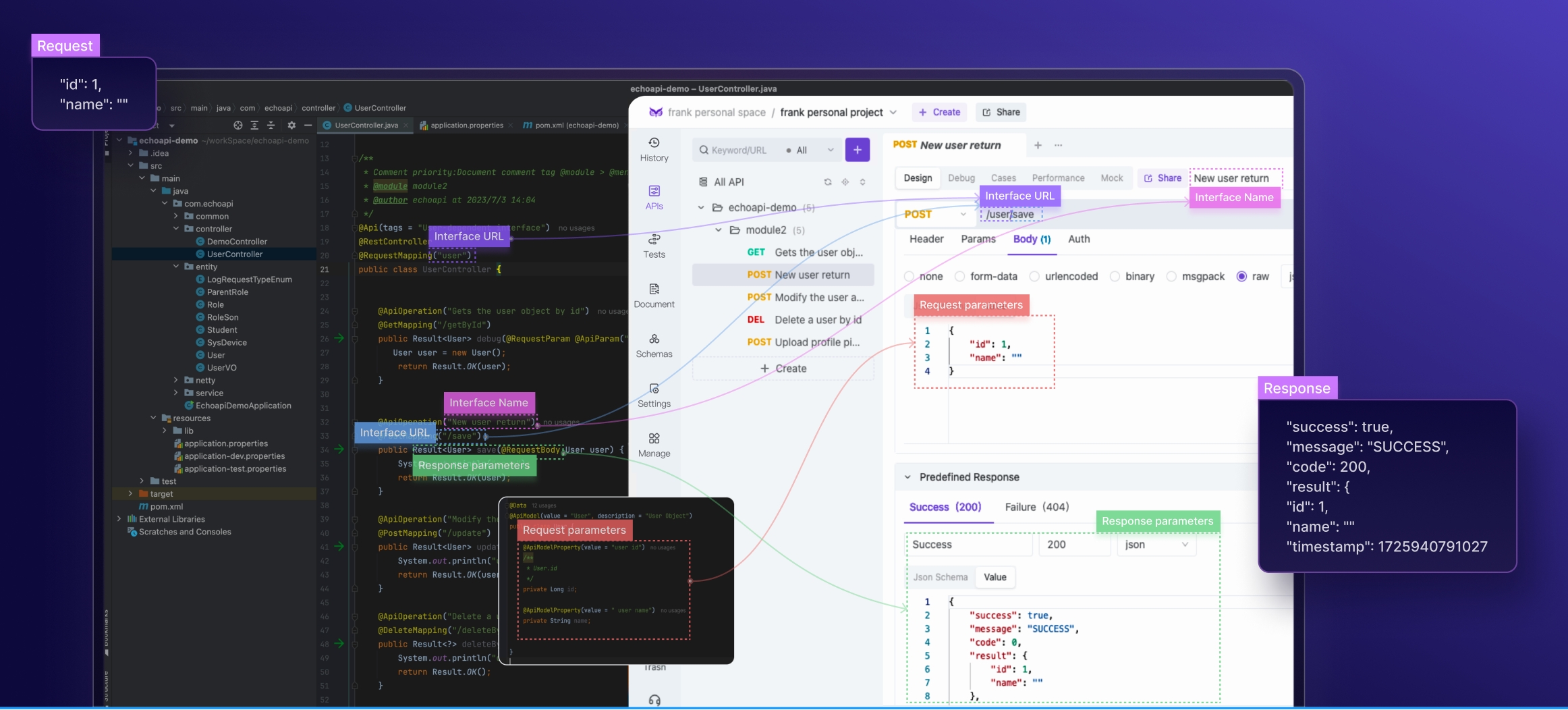
EchoAPI for VSCode : Allows rapid interface debugging directly within VSCode.
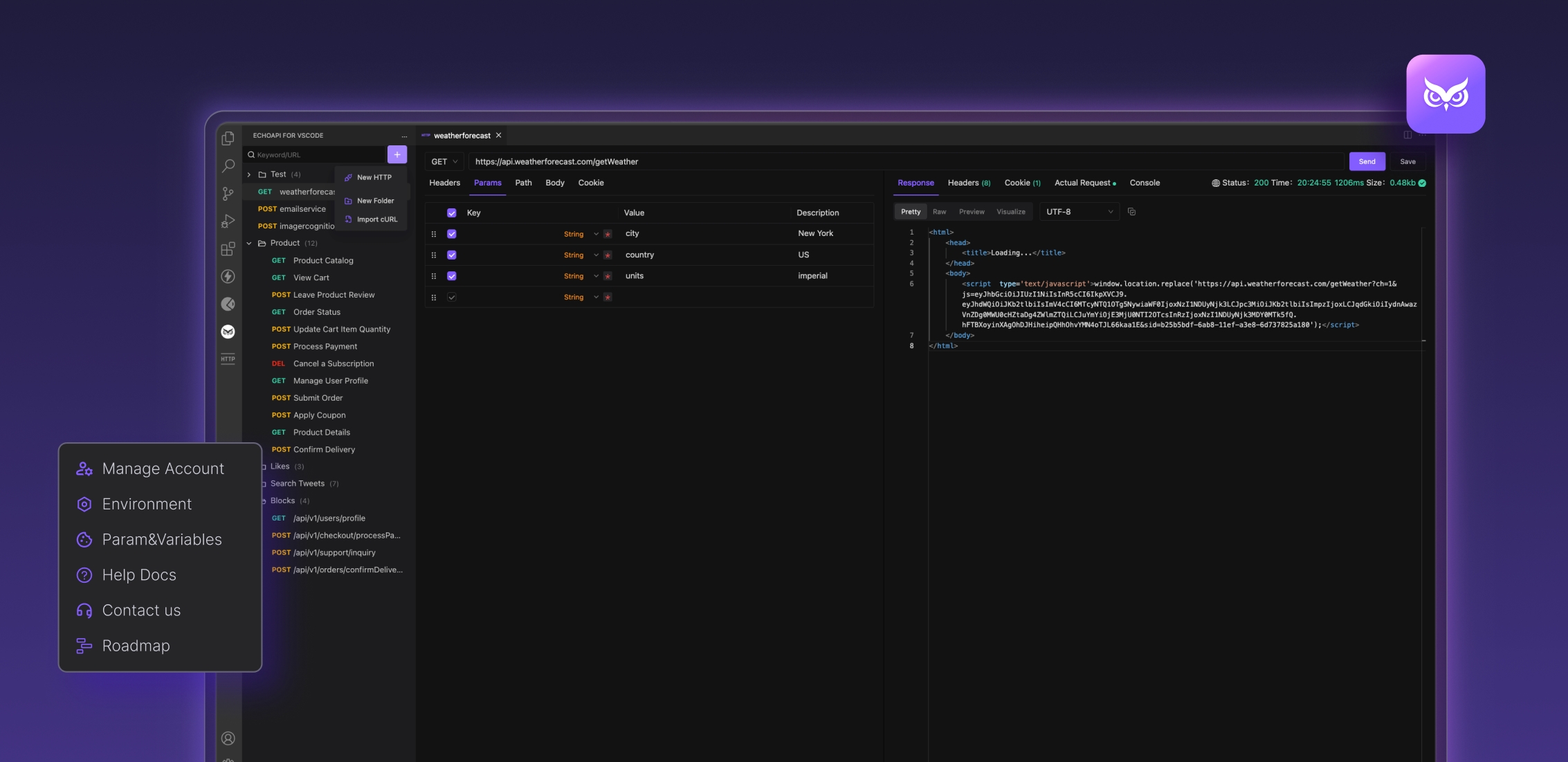
EchoAPI Interceptor: Captures web interface interactions and debugs directly on the web page.
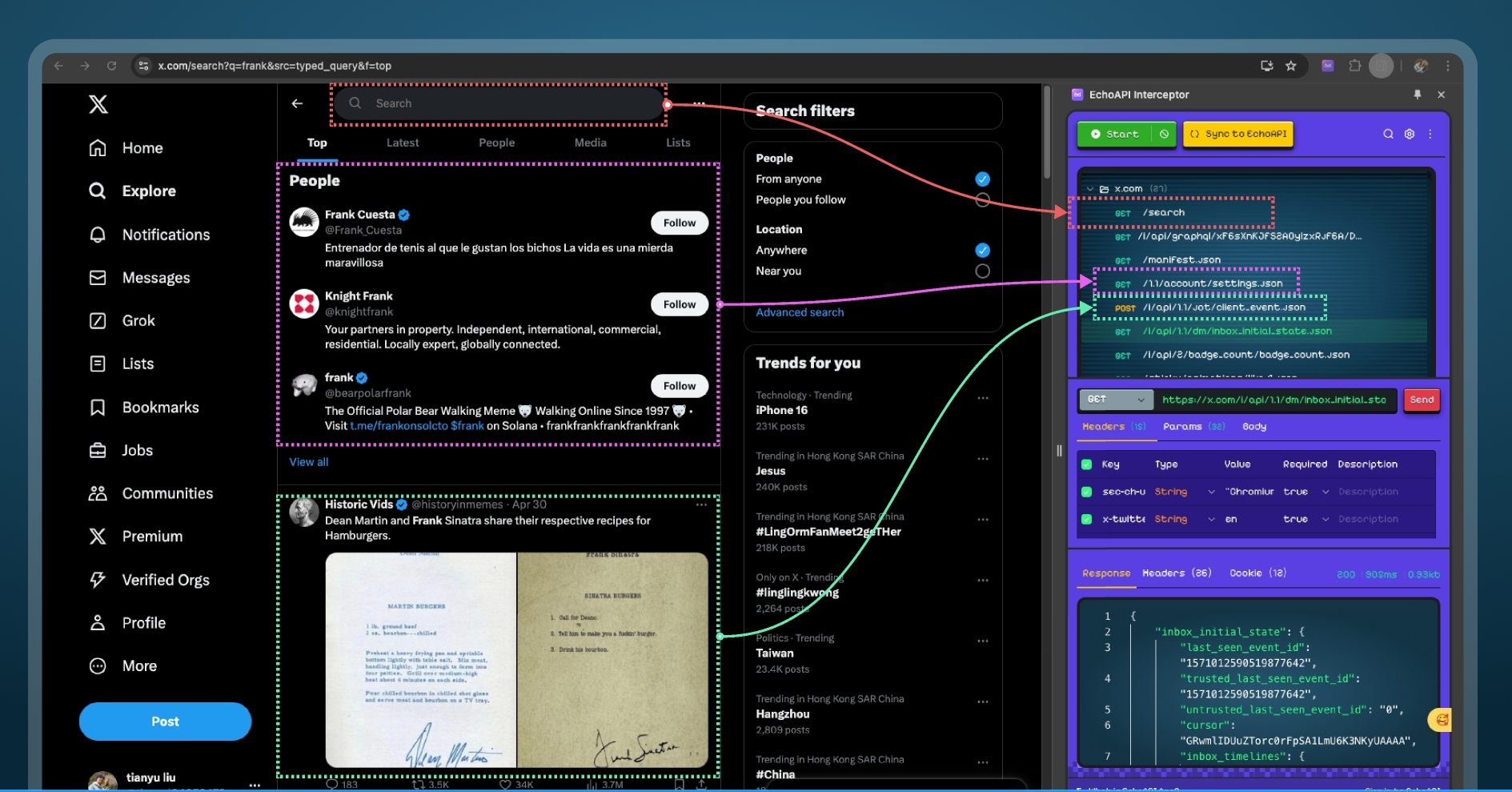
These plugins provide seamless integration and ease of use, enabling EchoAPI to adapt quickly to diverse development environments and significantly boost productivity.
Conclusion
Postman has been a beloved API tool among developers for years, offering a wealth of robust features. However, as development needs evolve and technology advances, EchoAPI is emerging as a powerful new option with its beautiful UI design, full offline support, strong performance and automated testing capabilities, flexible lightweight plugins, and flawless compatibility with Postman projects and scripts. If you’re interested in these features, give EchoAPI a try. You might find the high-efficiency API tool you’ve been looking for.




 EchoAPI for VS Code
EchoAPI for VS Code

 EchoAPI for IntelliJ IDEA
EchoAPI for IntelliJ IDEA

 EchoAPl-Interceptor
EchoAPl-Interceptor

 EchoAPl CLI
EchoAPl CLI
 EchoAPI Client
EchoAPI Client API Design
API Design
 API Debug
API Debug
 API Documentation
API Documentation
 Mock Server
Mock Server








